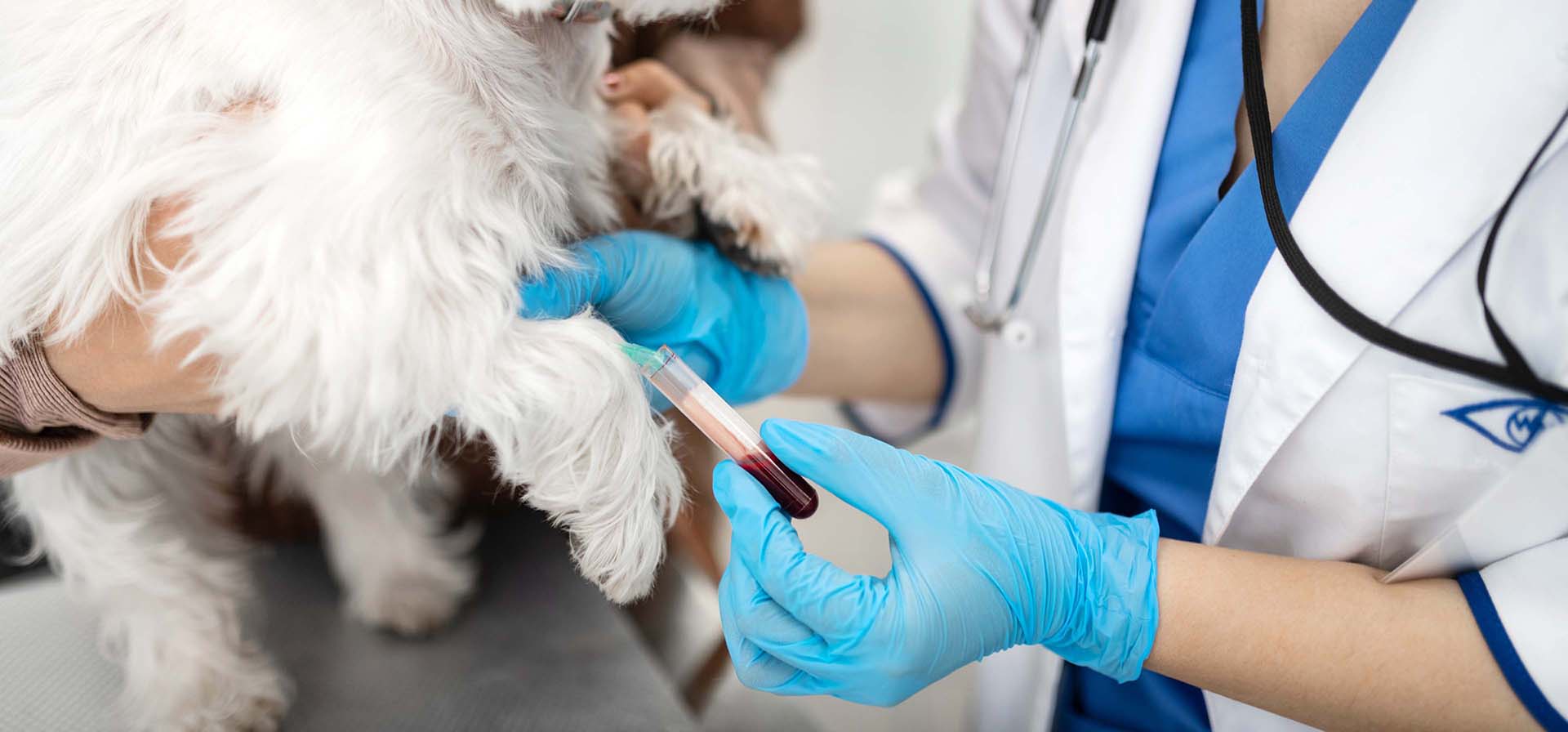Laboratory diagnostics - a prerequisite for a correct diagnosis
The modern laboratory allows our specialists to examine materials in the shortest possible time. You can pass physiological substances both in the clinic and in a more peaceful environment for the pet - for this you can cause branching on the house.
Regardless of the age of the research, all the indicators are stored in the electronic card of the patient of our vet clinic in Kiev and can be restored for distribution to owners in printed or electronic form.
Pet blood test
The functional state of the organism of the fluffy patient is made clear by blood analysis. Such a study is recommended every year. Such periodicity helps to detect a latent form of disease when the first symptoms have not yet appeared. If you are interested in a cat’s blood test, the price can be seen in our price list. There are several types of research:
- General blood analysis. It is assigned to animals taken from the orphanage, as well as to inmates with frequent urination, vomiting, diarrhea, increased thirst and weight loss. Prophylactic testing is necessary not only for animals with chronic diseases and elderly animals, but also for healthy pupils to be 100% sure of their health.
- Extensive biochemical analysis of the blood. Allows to determine how the organs work, to detect inflammatory process and microelement imbalance. If you need to decrypt the blood test for cats or dogs, our veterinarian will give you all the necessary clarifications.
A blood test is also required before a scheduled operation to avoid complications and ensure the safety of the patient’s anesthesia.
Animal feces analysis
Pet feces are important because they allow the veterinarian to learn about disorders and pathologies. A dog’s , cat’s or rodent feces should be analyzed for:
- Search for inflammatory processes in the gastrointestinal tract
- Understanding of food digestion
- Monitoring of pancreas activity
- Identification of micro-organisms causing intestinal infections and dysbacteriosis
After you have the dog analyzed, we will examine it in a very short time. For this purpose there is a special coprogram at the Veterinary Center. We will then inform you of further action.
Other laboratory studies
The Animal Clinic provides for the investigation of biomaterials such as:
- Urine
- Swabs and prints
- Skin and hair scraping
- Inorganic sediment components
For patients who are prepared for surgery, there is a preoperative test complex. Our veterinarians use the latest and effective diagnostic methods for accurate results: polymerase chain reaction and immuno-enzyme analysis.
At our veterinary center, you’ll get a cat blood test with decryption. Timely research will make it possible to adjust the prescriptions of the physician in the course of treatment and to monitor the dynamics of the favored person’s recovery.
Animal Clinic Services
- Blood draw
- Expanded biochemical blood test
- General blood test
- Clinical blood test
- Preoperative complex of analyzes
- Urine test
- Coprogram
- PCR diagnostics
- IFA diagnostics
- Microscopy of smears and fingerprints
- Skin scraping, wool structure
- Microscopy of organic and inorganic sedimentary inclusions


